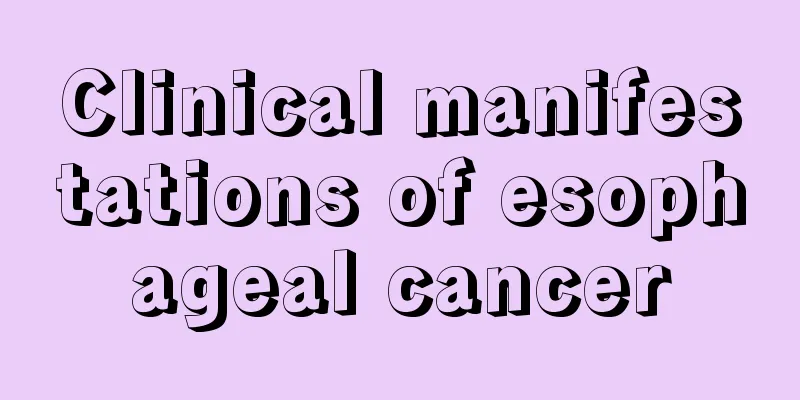I feel hungry, dizzy, and weak in my hands and feet

|
Every time people are hungry, they will feel dizzy and their hands and feet will feel weak. This is a serious condition, so they need to consume relevant foods. Otherwise, their symptoms will become more and more serious, eventually causing hypoglycemia or other serious complications, which will complicate the situation. 1. Nervous system diseases Such as cerebral ischemic lesions, cerebellar lesions, brain lesions, brain trauma, certain types of epilepsy, etc. In addition, patients with autonomic dysfunction and certain neuroses also often feel dizzy. 2. Ear diseases For example, ear diseases may affect balance and cause dizziness. 3. Internal medicine diseases Such as hypertension, hypotension, various cardiovascular and cerebrovascular diseases, anemia, infection, poisoning, hypoglycemia, etc. 4. Cold Sometimes a cold may cause dizziness. 5. Cervical vertebrae degeneration The main cause of dizziness is the growth, deformation, and degeneration of the cervical vertebrae caused by long-term poor posture or sleeping position, tightening of the neck muscles, and obstruction of arterial blood supply, resulting in insufficient blood supply to the brain. The patient often experiences tightness in the neck, limited flexibility, occasional pain, numbness and coldness of the scalp and fingers, shoulder pain, a feeling of heaviness, and even nausea and palpitations. 6. Anemia If dizziness is accompanied by fatigue and pale complexion, the possibility of anemia should be considered. Patients with indigestion, peptic ulcer, gastrointestinal bleeding and chronic inflammatory diseases may all develop anemia. 7. High blood viscosity Hyperlipidemia, thrombocythemia and other conditions can increase blood viscosity and slow blood flow, resulting in insufficient blood supply to the brain, and easily leading to symptoms such as fatigue, dizziness, and weakness. Currently, the incidence of this type of disease is on the rise. 8. Cerebral arteriosclerosis The patient feels dizzy and often suffers from insomnia, tinnitus, emotional instability, forgetfulness, and numbness in the limbs. Cerebral arteriosclerosis reduces the inner diameter of cerebral blood vessels, reduces blood flow in the brain, causes insufficient blood and oxygen supply to the brain, and causes dizziness. The clinical characteristics are three major symptoms: dizziness, sleep disorders, and memory loss, as well as occipital headache, mild paresis, speech disorders, and irritability. The disease generally develops slowly. The characteristic of this type of dizziness is that it is easy to occur or worsen when the body position changes. 9. Heart disease, coronary heart disease In the early stages of the disease, symptoms are still mild. Some people may not experience obvious discomfort such as chest tightness, palpitations, shortness of breath, etc. They may only feel headache, dizziness, weakness in the limbs, difficulty concentrating, tinnitus, or forgetfulness. Heart diseases such as cardiac arrest, paroxysmal tachycardia, paroxysmal atrial fibrillation, ventricular fibrillation, etc. can lead to acute cerebral ischemia, with symptoms such as dizziness, blurred vision, stomach discomfort, and syncope. 10. Drug poisoning Poisoning by streptomycin, neomycin, kanamycin, gentamicin, etc. is the most common. In addition to dizziness, patients also suffer from vertigo and sensorineural hearing loss caused by cochlear nerve damage. Chronic lead poisoning often manifests as neurasthenia syndrome, with dizziness, headache, insomnia, forgetfulness, fatigue, and nightmares as the main symptoms, as well as hypothermia and loss of appetite. 11. Functional hypoglycemia It can also cause dizziness, palpitations, weakness, tremors when on an empty stomach or when exerting force, sometimes convulsions, loss of consciousness, etc. When you are emotionally stressed or hyperventilating, respiratory alkali poisoning may occur due to increased carbon dioxide excretion, brain cell hypoxia, causing dizziness and fatigue. The patient may also feel numbness and coldness in the face, hands and feet, and occasionally a sense of trance. |
<<: The mooncake skin is very soft after baking
>>: How to make eyes bright and energetic
Recommend
How to choose a hospital for the diagnosis and treatment of bladder cancer
We have a lot of doubts about the occurrence of b...
Can eating loquat raw relieve cough?
Cough is a common symptom and a disease that many...
Pancreatic cancer symptoms will have a series of neurological symptoms
Pancreatic cancer symptoms include a series of ne...
What to do if bleeding occurs after cervical cancer surgery
If the vaginal stump is not repaired after cervic...
Can yogurt be heated?
Winter is coming soon. For some cold foods, peopl...
Is the treatment of advanced nasopharyngeal carcinoma painful? How to take care of it?
Radiotherapy is a good method for the treatment o...
What are some traditional Chinese medicines that can soothe the liver and relieve depression?
If liver qi stagnation occurs, it will often lead...
6 DIY ways to turn your home into an allergy-free oasis
Fortunately, with a few simple ideas and a small ...
Is it okay to rinse your lower body with hot water?
Both men and women should pay attention to their ...
Which three places do cervical cancer usually itch
Cervical cancer is a common malignant tumor of th...
Is grade 2 cervical cancer serious?
There are many unpredictable causes of cervical c...
How to squeeze grapefruit juice to make it taste good
Everyone knows that biological enzymes can promot...
What is the reason for urinating soon after drinking water?
Many people think that urinating soon after drink...
Why can't I turn my wrist in a circle and it hurts?
The wrist has a complex joint structure and is co...
This kind of woman is most likely to become an unmarried mother
Marriage in metaphysics refers to the union of yi...









